
Vivian Maier’s photos were seemingly destined for obscurity, lost among the clutter of the countless objects she’d collected throughout her life. Instead these images have shaken the world of street photography and irrevocably changed the life of the man who brought them to the public eye. This film brings to life the interesting turns and travails of the improbable saga of John Maloof’s discovery of Vivian Maier, unravelling this mysterious tale through her documentary films, photographs, odd collections and personal accounts from the people that knew her. What started as a blog to show her work quickly became a viral sensation in the photography world. Photos destined for the trash heap now line gallery exhibitions, a forthcoming book and this documentary film.
You May Also Like

Giving creatives the chance to step outside the box while being confined to their own homes, the filmmakers behind With/In range from seasoned directors to first-timers, all provided with the same iPhone and basic gear to bring their visions to life.

Playing Frisbee in North Korea is the first documentary produced and directed by an African-American female filmmaker from inside North Korea. The idea began at a conference on Korean Re-unification organized by General Colin L. Powell and the Colin Powell Center, where director Savanna Washington was a Graduate Fellow. Through verité footage from inside North Korea, interviews with North Korean refugees, long time aid workers, scholars, and experts on the topic, this documentary provides an authentic, on the ground perspective of the lives, struggles, and humanity of the people of North Korea.
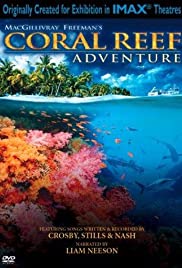
Coral Reef Adventure follows the real-life expedition of ocean explorers and underwater filmmakers Howard and Michele Hall. Using large-format cameras, the Halls guide us to the islands and sun-drenched waters of the South Pacific to document the health and beauty of coral reefs. Featuring songs written and recorded by Crosby, Stills & Nash.
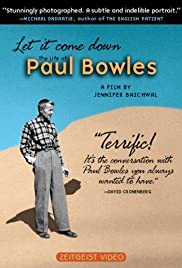
One of the most enigmatic artists of the 20th century, writer, composer and wanderer Paul Bowles (1910-1999) is profiled by a filmmaker who has been obsessed with his genius since age nineteen. Set against the dramatic landscape of North Africa, the mystery of Bowles (famed author of The Sheltering Sky) begins to unravel in Jennifer Baichwal’s poetic and moving Let It Come Down: The Life of Paul Bowles. Rare, candid interviews with the reclusive Bowles–at home in Tangier, as well as in New York during an extraordinary final reunion with Allen Ginsberg and William Burroughs–are intercut with conflicting views of his supporters and detractors. At the time in his mid-eighties, Bowles speaks with unprecedented candor about his work, his controversial private life and his relationships with Gertrude Stein, Tennessee Williams, Truman Capote, the Beats, and his wife and fellow author Jane Bowles.
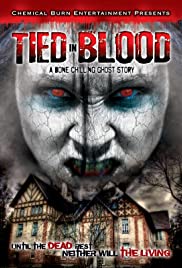
George, convinced a ghost killed his family, hires Robert, a talented Medium frustrated by his job. As the dead return to tell of ghostly seduction, demonic rage, and brutal murder, Robert discovers a horror more real than any ghost story.

For years, the murder of Chilean protest singer Victor Jara was blamed on an official in Pinochet’s army. Now in exile, he tries to exonerate himself.
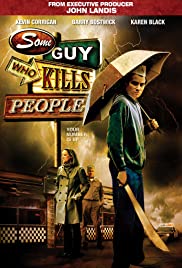
A former mental patient’s repressed anger reaches the boiling point, leading him to embark on a mission of revenge against the thugs who once subjected him to severe physical and mental trauma.
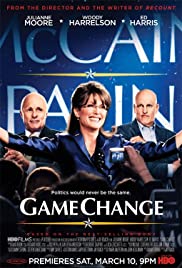
Based on the book by John Heilemann and Mark Halperin, Game Change focuses on the Republican run of the 2008 Presidential election, when candidate John McCain picks a relative unknown, Alaskan governor Sarah Palin, to be his running mate. As the campaign kicks into high gear, her lack of experience, in both political and media savvy, becomes a drain upon McCain and his strategists. Directed by Jay Roach, who previously directed the HBO film Recount and the Austin Powers movies, Game Change premiered on HBO on March 10th, 2012.
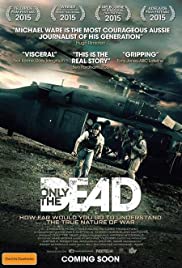
A searing account of war correspondent Michael Ware’s seven years reporting in Iraq–an extraordinary journey that takes him into the darkest recesses of the Iraq War and the human soul.

Five hundred miles north of Vancouver is Kitamaat, an Indian reservation in the homeland of the Haisla people. Growing up a tough, wild tomboy, swimming, fighting, and fishing in a remote village where the land slips into the green ocean on the edge of the world, Lisamarie has always been different. Visited by ghosts and shapeshifters, tormented by premonitions, she can’t escape the sense that something terrible is waiting for her. She recounts her enchanted yet scarred life as she journeys in her speedboat up the frigid waters of the Douglas Channel. She is searching for her brother, dead by drowning, and in her own way running as fast as she can toward danger. Circling her brother’s tragic death are the remarkable characters that make up her family: Lisamarie’s parents, struggling to join their Haisla heritage with Western ways; Uncle Mick, a Native rights activist and devoted Elvis fan; and the headstrong Ma-ma-oo (Haisla for “grandmother”), a guardian of tradition.
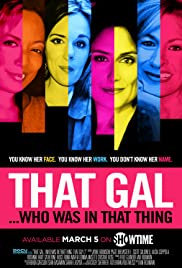
That Gal…Who was in That Thing: That Guy 2

An immersive documentary film featuring behind-the-scenes access to some of basketball’s future stars competing in the G League – the NBA’s developmental league – as they try and achieve their lifelong dream of making it to the NBA.